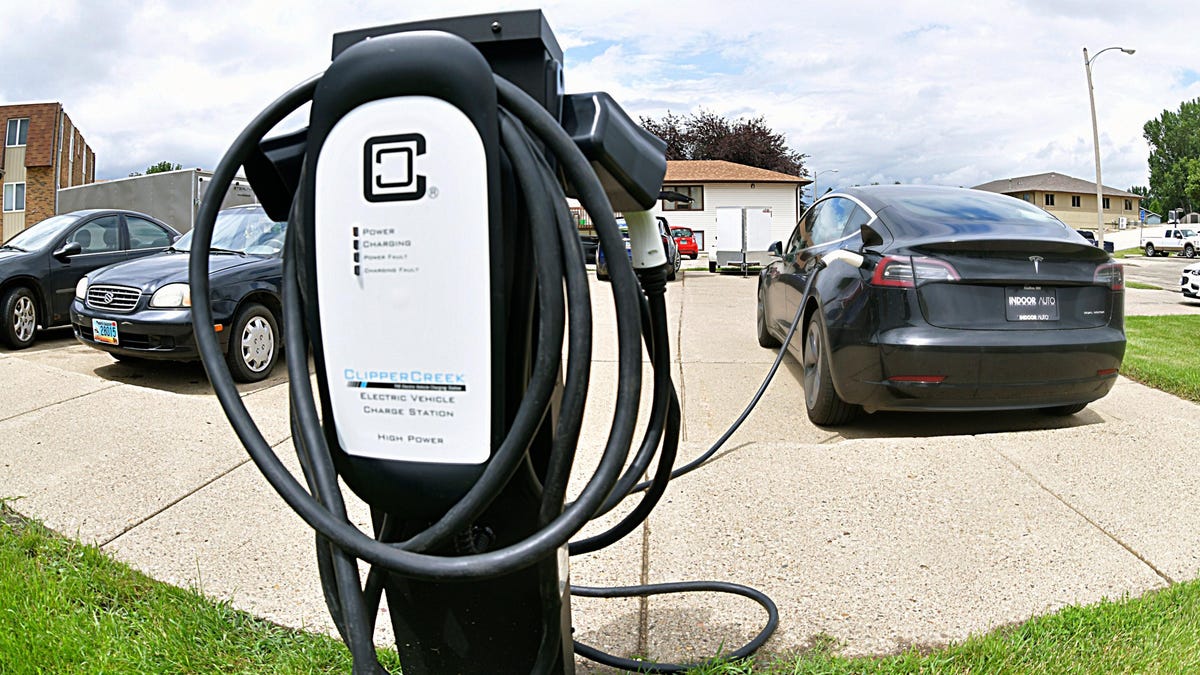Main Topic: Seven major automakers are joining forces to build a North American electric vehicle charging network to rival Tesla's and increase the number of fast-charging plugs in the U.S. and Canada.
Key Points:
1. The automakers, including General Motors, BMW, Honda, Hyundai, Kia, Mercedes, and Stellantis, will invest in building "high power" charging stations with 30,000 plugs in urban areas and along travel corridors.
2. The goal is to speed up the adoption of electric vehicles and address concerns about the availability of chargers for long-distance travel.
3. The network will be public, open to all electric vehicle owners, and will include connectors for both Tesla's North American Charging Standard plugs and the Combined Charging System plugs used by other automakers.
Main topic: ElectroTempo, an EV tech company, raises $4 million in funding and plans to expand its product and sales team.
Key points:
1. ElectroTempo develops planning and intelligence software for electric vehicle charging stations and infrastructure.
2. The company raised $4 million in a seed round led by Buoyant Ventures and won a $2 million award from the Department of Energy.
3. ElectroTempo's software predicts EV charging demand, helps design charging networks, and integrates with existing modeling software for better infrastructure planning.
### Summary
The majority of Americans are not convinced by federal incentives to buy electric vehicles (EVs), and some are even discouraged by them, according to an exclusive survey. While President Joe Biden aims for two-thirds of new vehicle sales to be electric by 2032 and plans to build a network of 500,000 chargers across the country, only 29% of respondents said incentives influenced their decision to buy an EV.
### Facts
- 🚗 Only 29% of Americans said government incentives had increased their consideration of purchasing an EV.
- 💰 Americans in higher income brackets are more likely to consider owning an EV than those earning less.
- 💸 The cost of EVs remains a barrier across all income brackets, as they are generally more expensive than gas-powered cars.
- 📉 EV sales growth in the US has started to slow, suggesting that high upfront costs are deterring consumers.
- ⚡ Americans have concerns about running out of charge and access to charging stations, particularly in low income areas where the charging infrastructure is lacking.
- 🚙 Two of the world's largest carmakers, Toyota and Stellantis, criticized the government's electric car push as overly optimistic and cited challenges such as the cost to consumers and gaps in the charging infrastructure.
- 📊 Seven major car manufacturers, including General Motors and Stellantis, have announced a plan to install 30,000 chargers to alleviate the shortage.
The Biden administration is providing $12 billion in grants and loans to incentivize automakers and suppliers to retrofit their plants for the production of electric and advanced vehicles.
The U.S. Department of Energy announced a $15.5 billion package of funding and loans to support the transition to electric vehicles, retool existing factories, and expand domestic manufacturing of batteries, emphasizing job retention and promoting equity and environmental justice.
The Biden administration faces pressure to deliver on its promise of better wages and benefits for workers at electric vehicle facilities as negotiations between the United Auto Workers union and major US automakers continue, with the announcement of up to $12 billion in loans from the Department of Energy to retrofit existing manufacturing facilities for EV production and create high-paying union jobs.
Tesla plans to install 20,000 electric vehicle charging stations across 2,000 Hilton properties in the U.S., Mexico, and Canada, in an effort to increase mass adoption and meet the growing demand for EV charging from leisure and business travelers.
The US Department of Transportation has allocated $100 million to repair broken electric vehicle chargers in an effort to create a reliable network of public charging ports by 2030.
Americans' hesitations to buy electric vehicles (EVs) are largely due to concerns around charging, with surveys showing that a lack of charging stations is a significant barrier to purchase, but efforts are being made to expand and improve the U.S. charging landscape through major incentives, partnerships, and the development of a single charging standard like Tesla's NACS plug design.
The Treasury Department has outlined guidelines for car dealers to offer immediate access to federal tax credits for electric vehicles, aiming to incentivize more people to purchase EVs and help achieve President Biden's goal of increasing EV sales to 50% by 2030. This move provides consumers with a point-of-sale rebate for EVs, reducing the purchase price by up to $7,500 at the time of purchase instead of waiting for the annual tax filing period.
Starting in January, consumers will be able to use the $7,500 electric vehicle tax credit as a point-of-sale rebate, effectively reducing the purchase price of EVs, according to new guidance issued by the U.S. Treasury Department.
Starting next year, low- and middle-income buyers will be able to receive the full $7,500 electric vehicle tax credit upfront at the point of sale, regardless of their tax liability, thanks to new guidance from the IRS. The changes include a provision allowing buyers to transfer the credit to the dealership, making EVs more affordable for lower-income individuals and addressing a regressive aspect of the previous credit system.
